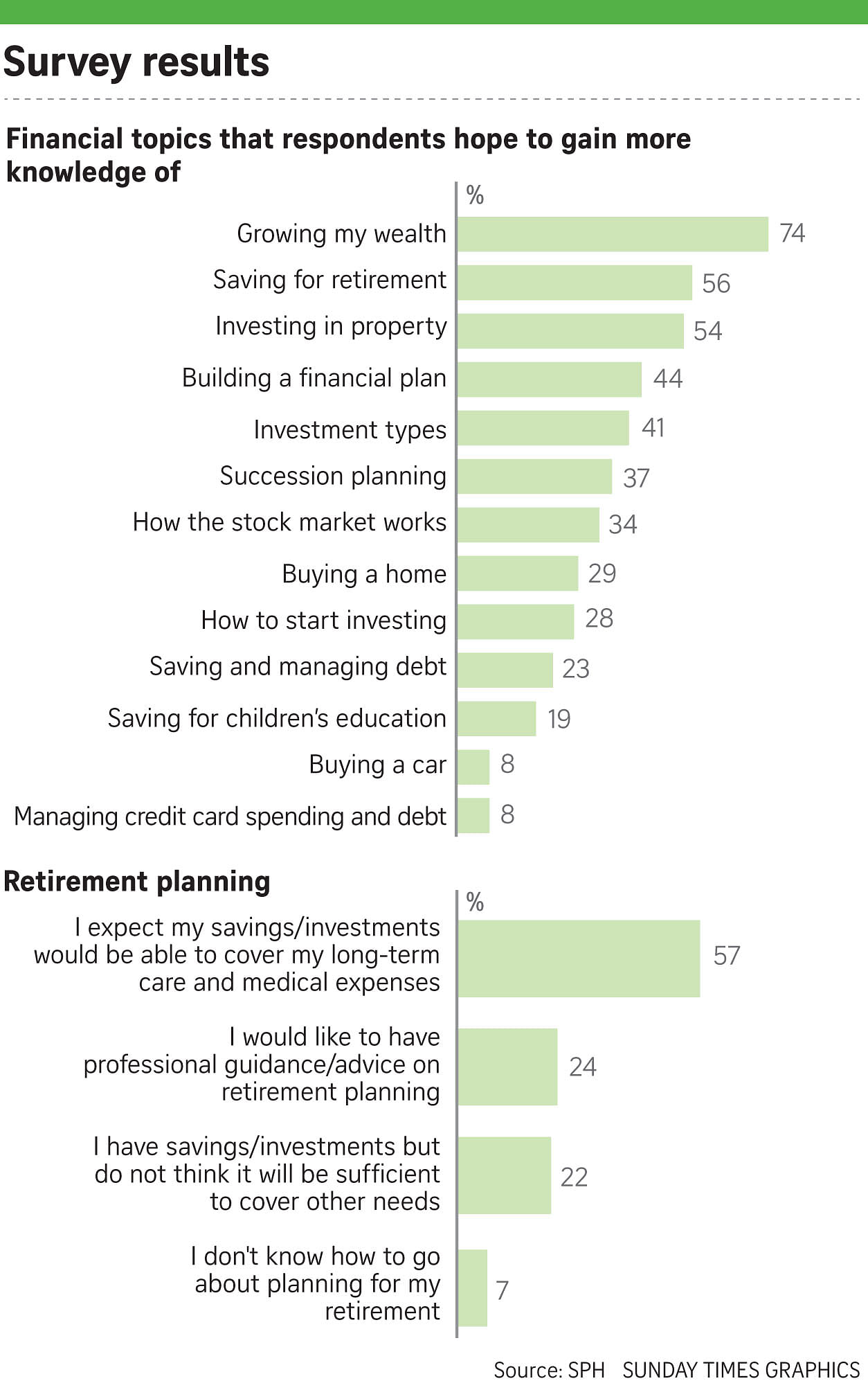You might imagine senior management types would have it all worked out when it comes to managing their personal finances.
But a poll of 100 honchos in Singapore found they want to learn more about financial management not just for themselves but also to prepare the next generation.
Four in 10 of the respondents said they could do with more knowledge on how they can manage their money better and build their assets and investments.
And nearly eight in 10 cited educating the next generation about the importance of financial planning and wealth generation as a top priority to prepare them to take on the family's wealth in the future. This means equipping them with financial management skills, life survival skills and a good understanding of work challenges.
This is followed by other priorities such as setting aside seeding funds for them (58 per cent), such as for their wedding and first home, and investing in properties on their behalf (38 per cent).

The survey - commissioned by Citibank Singapore - polled about 100 individuals who hold management positions such as chairman, chief executive officer (CEO) and managing director of firms here. The majority are aged between 30 and 60, earning more than $180,000 a year. About half of them live in landed homes. The research was conducted online by Singapore Press Holdings last month.
Mr Charles Wong, head of retail banking at Citibank Singapore, believes this is the first in-depth financial planning and wealth management survey done of CEOs and affluent people here, looking at ways in which they are investing to achieve their desired retirement lifestyle and growing their wealth to leave to their offspring.
"This survey offers us greater insights into the needs of this group of experienced investors and allows us to identify and fill the gaps, so as to help them reach their financial and lifestyle goals even faster," he said.
Ranking high on the list of financial topics that the survey respondents wish to upgrade their knowledge on are wealth accumulation, saving for retirement, investing in property, building a financial plan, and equity and fixed income investments know-how.
Top on the list of financial goals among the respondents are ensuring financial independence during retirement and that adequate long-term healthcare needs and expenses are met. About 57 per cent expect their savings/investments to be able to cover their long-term care and medical expenses, while 22 per cent do not think so.
Most respondents already own personal insurance, stocks and properties. Still, they are interested in acquiring properties, stocks and other financial instruments such as warrants and exchange-traded funds for future investment.
Nearly half of those polled said they have worked out a financial plan. Of this, most have worked out a financial plan by themselves while about 30 per cent said they did it with a financial planner.
About 62 per cent of the respondents have set aside savings to provide for their children's tertiary education while a third bought endowment plans.
In a positive light, the survey highlights that the respondents are looking at various sources of retirement income. As part of their retirement planning, the majority (77 per cent) have invested in property as well as parked money (74 per cent) in savings, fixed deposits and retirement savings accounts. About 66 per cent have invested in financial products such as stocks, bonds, unit trusts and currencies.
Seven per cent say they do not know how to go about planning for their golden years while 24 per cent would like to have professional help in retirement planning.
Reasons given by those who have not engaged in retirement planning include not knowing how to invest for retirement, having other more important priorities, and not having thought about their retirement.
When it comes to legacy planning, respondents cited the distribution of assets and writing a will as two key areas of information that would be helpful.
Other areas of interest include recommendations on suitable products based on their portfolio and life stage, and the types of insurance legacy products in the market.
On investing habits, the survey highlighted that diversification is not so important to the majority of the respondents (70 per cent), who would increase their portfolio allocation to their winning investments when the portfolio is making profits.
Almost six in 10 respondents like to time their investment entry and exit to maximise profits and 32 per cent said they would average down when their investments are losing money. Like most retail investors, 22 per cent found it difficult to take profit from profitable investments as they expect the good performance to continue.

